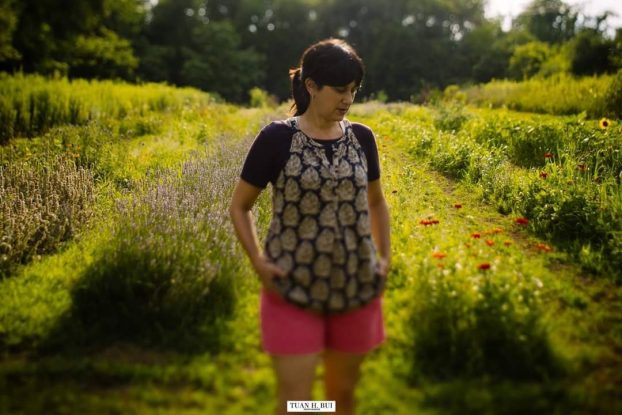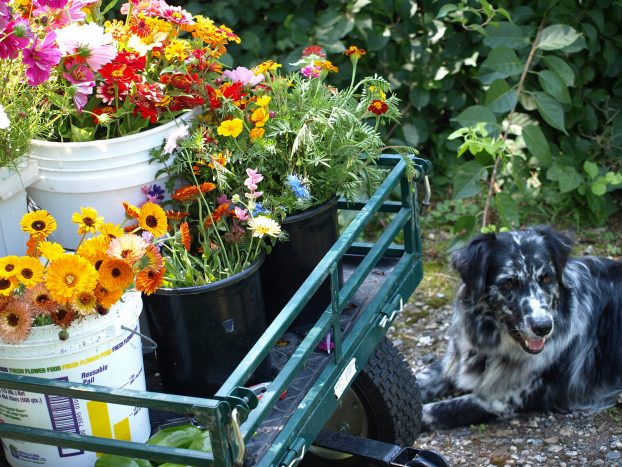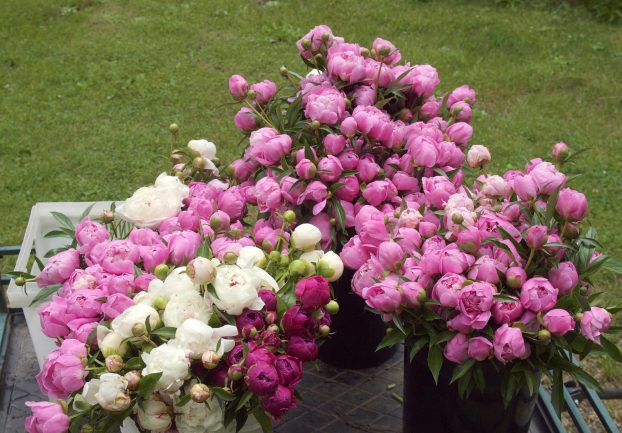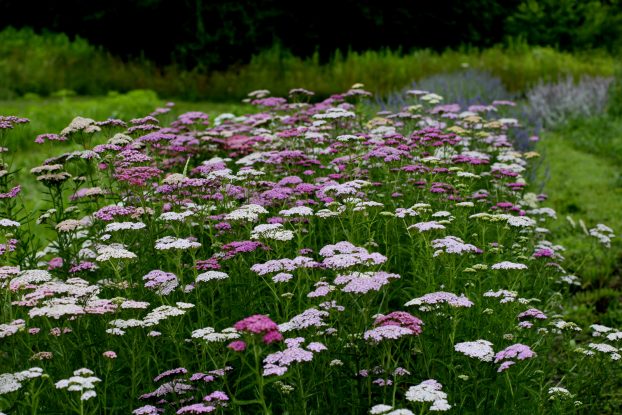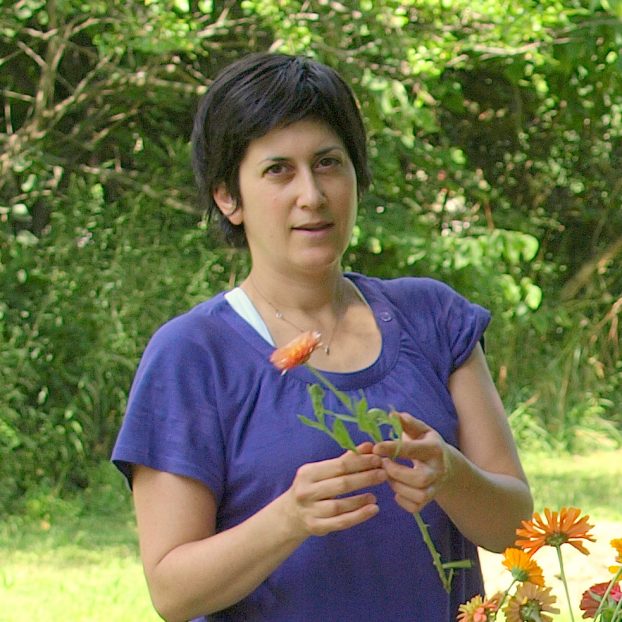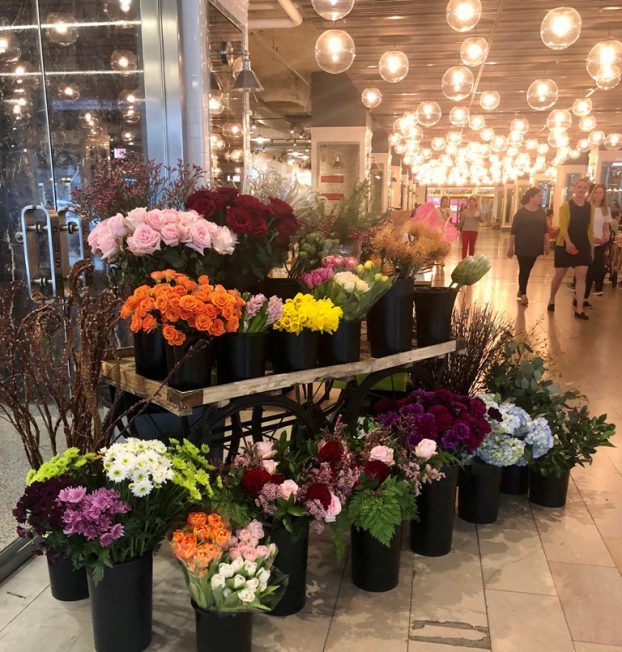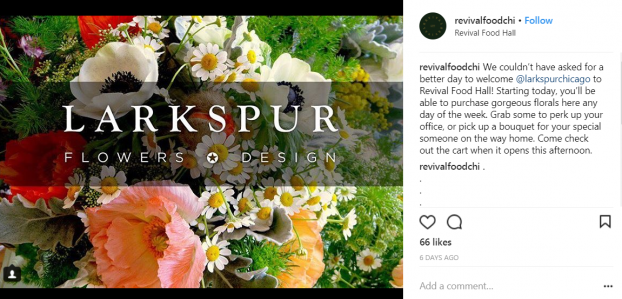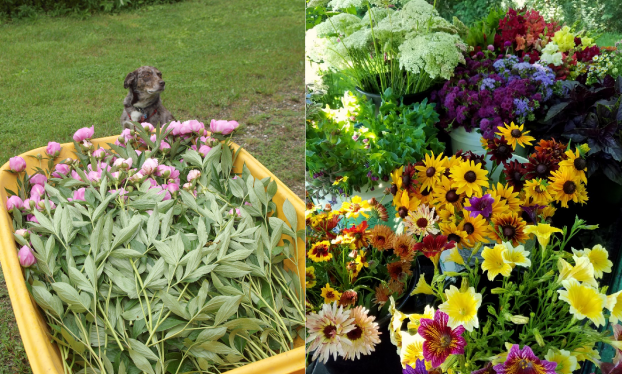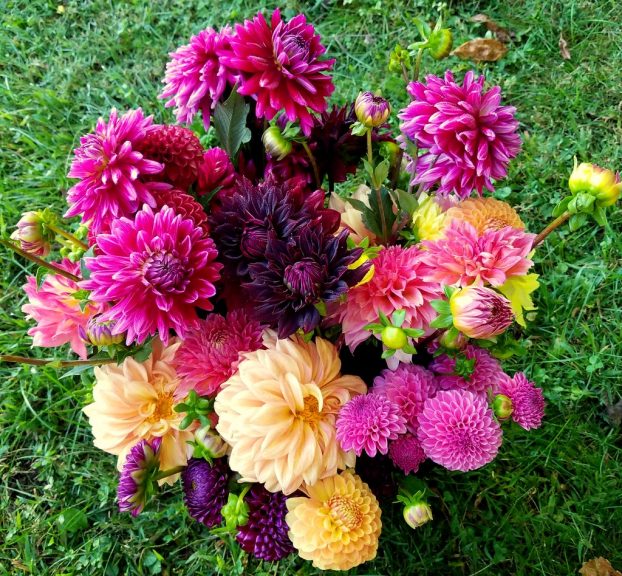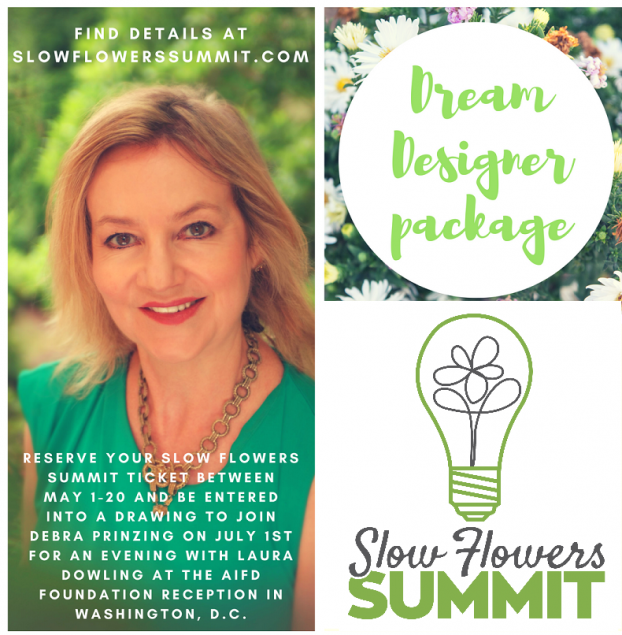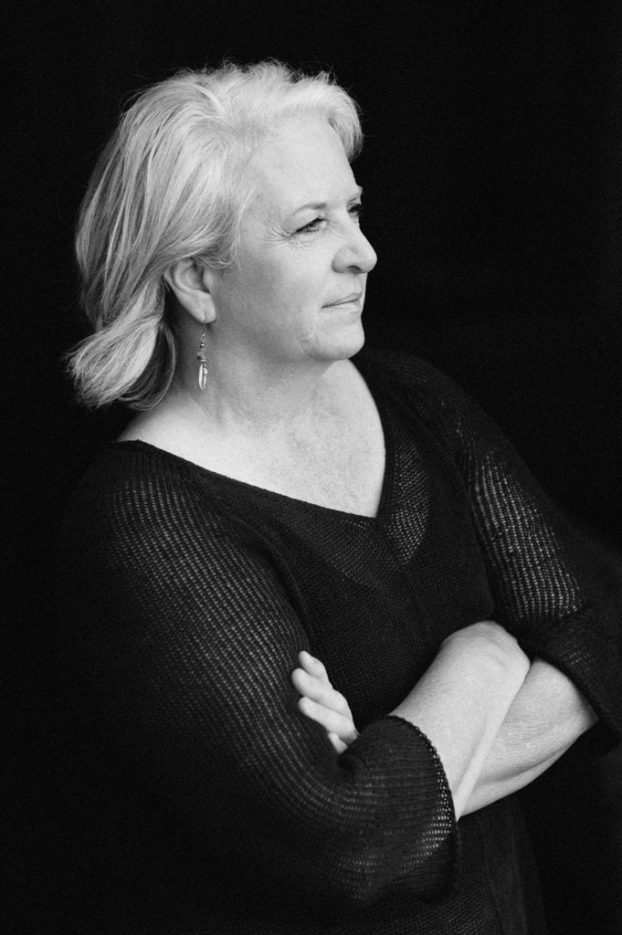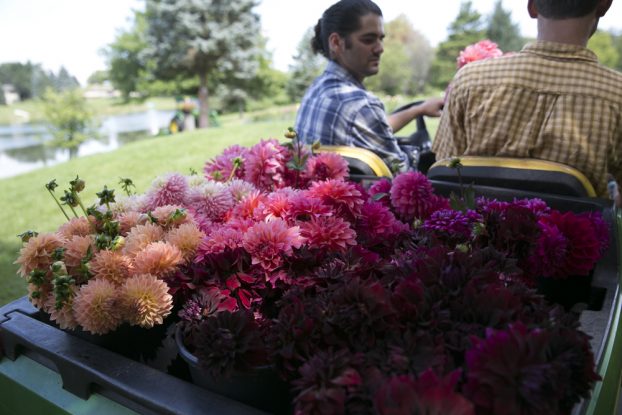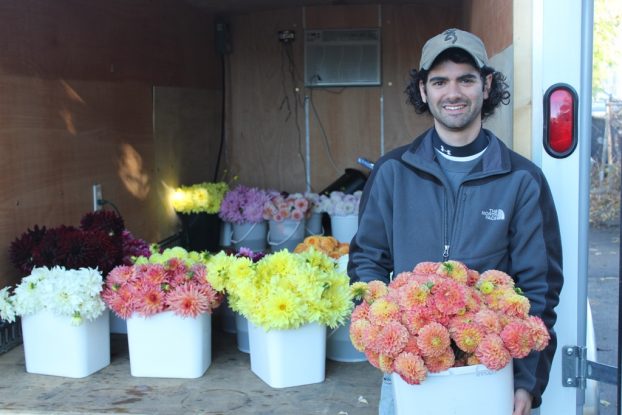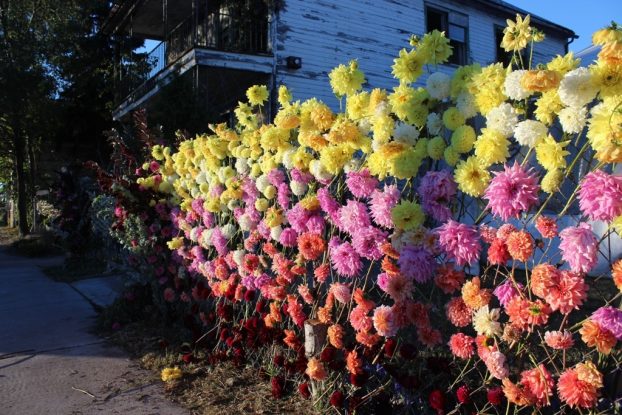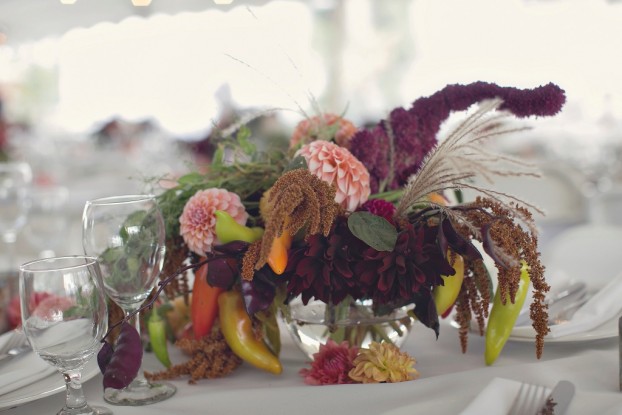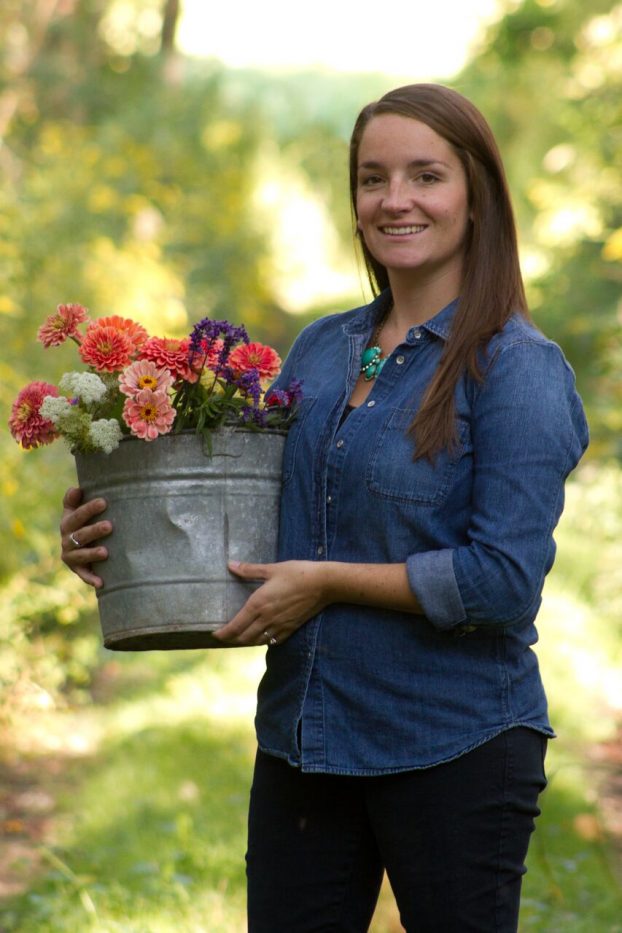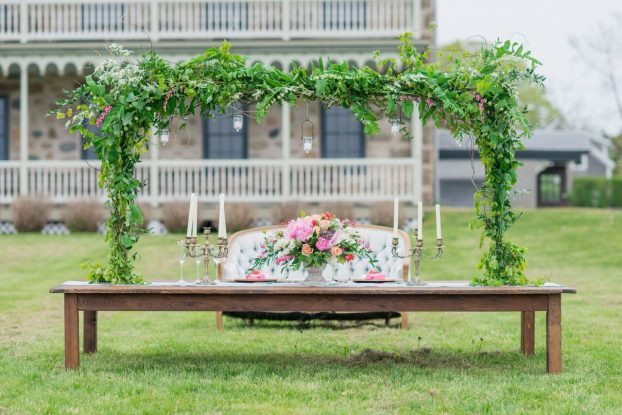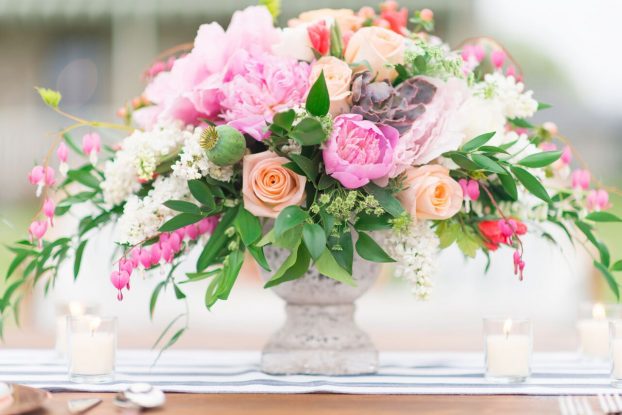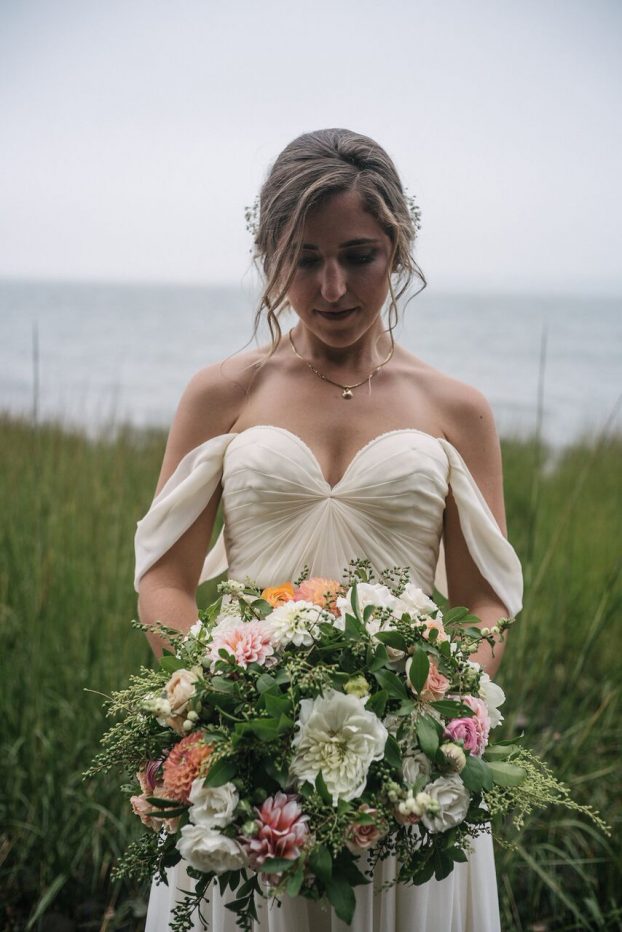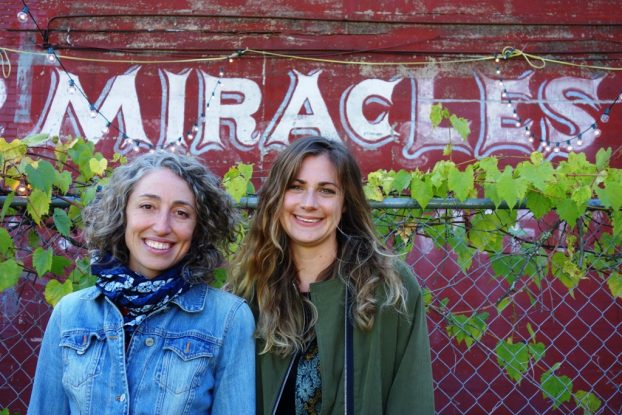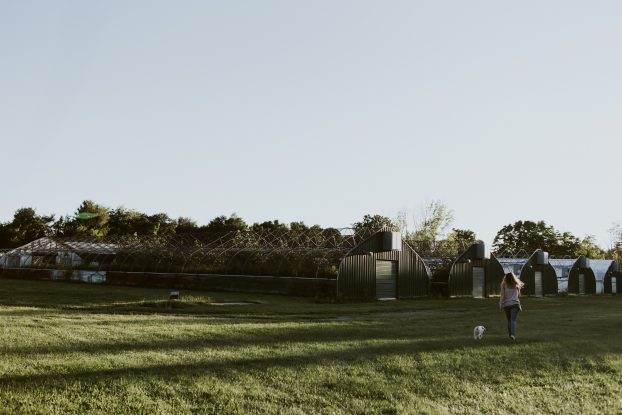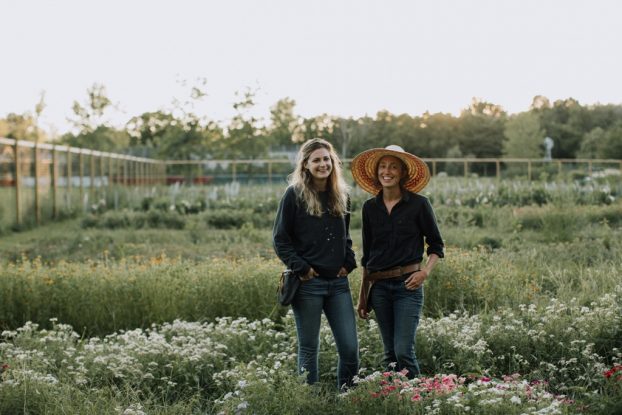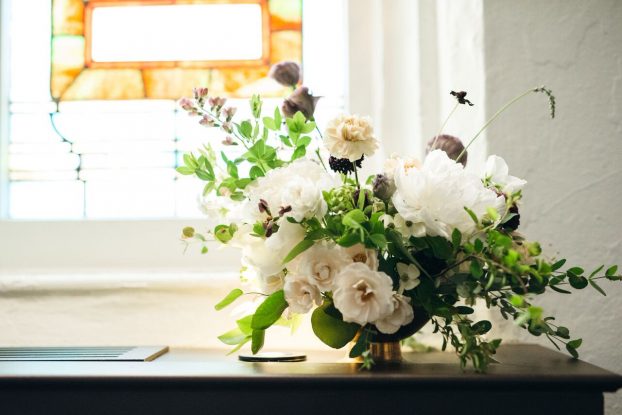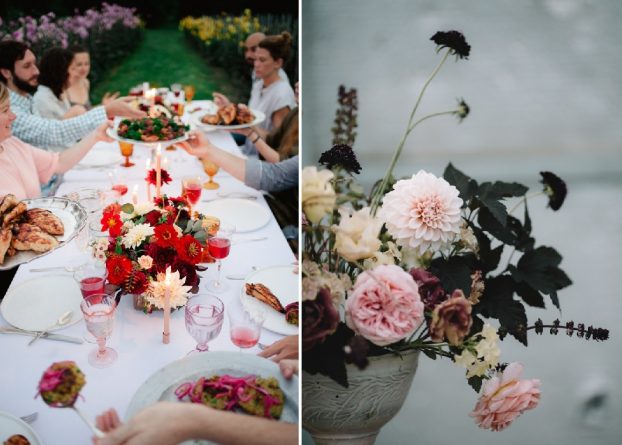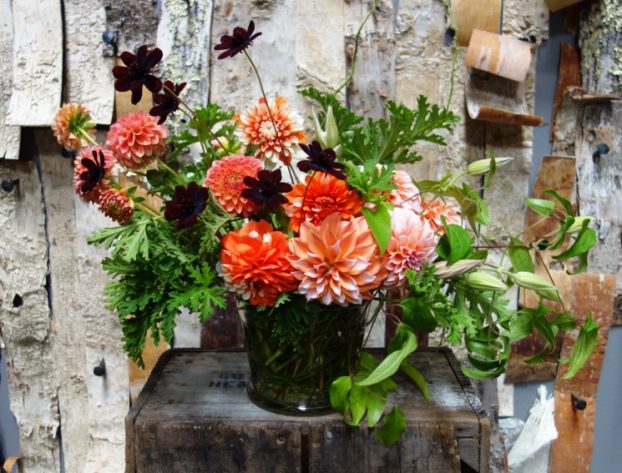Podcast: Play in new window | Download
Subscribe: Apple Podcasts | Podcast Index | RSS | More
Welcome to the Slow Flowers Podcast!
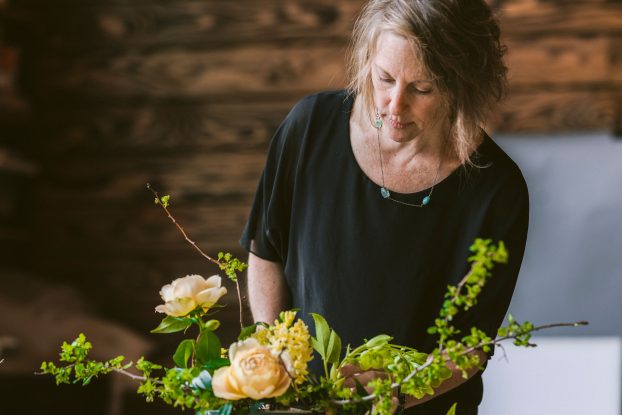
This is an important week in the floral world and we want to draw your attention to two very cool projects happening in London and New York City.
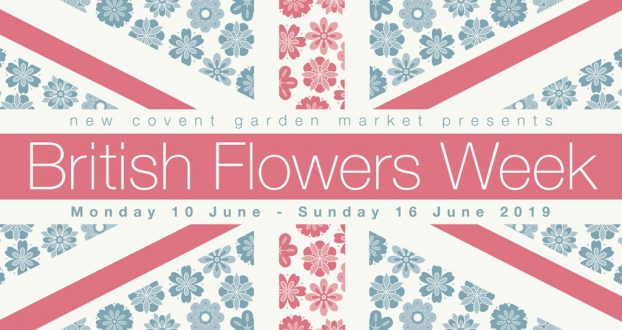
First of all, British Flowers Week is happening right now — It runs June 10-16 — and we’re cheering on this original flowers week celebration from across the Atlantic.
As you may have learned from past episodes, the inspiration for American Flowers Week, launched in 2015, came directly from our friends at New Covent Garden Flower Market in London who launched British Flowers Week in 2013.
Check out galleries of U.K.-grown flowers and installations in real time by following the social media feeds of @marketflowers and the Garden Museum in London @gardenmuseum, which for the second year will open its doors to some spectacular installations that the public can see and enjoy.
The mission of British Flowers Week is concise and clear: Showcase great British flowers, plants and foliage through great British floristry; Raise awareness of which British flowers are in season when; Encourage the public to buy more British flowers. Here’s to British flowers!
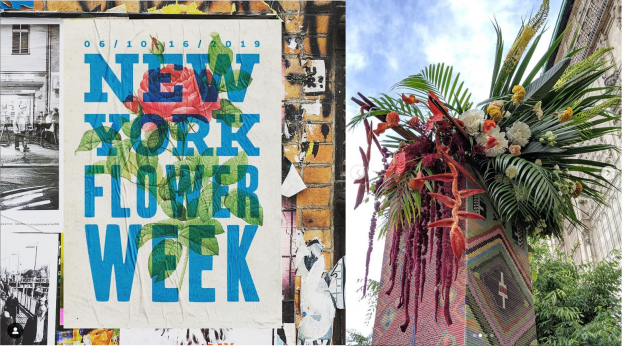
Second, in New York City, the new L.E.A.F. Flower Show debuts. L.E.A.F brings a riot of color across the city with #NYFlowerWeek – a series of pop-up floral installations in which Manhattan will – quite literally – blossom on Tuesday, June 11th and Wednesday, June 12th. We will have more information on this project in the future, but for now, I congratulate New York for bringing more flowers to the forefront of the city landscape!
We’re especially cheering for Slow Flowers member Sylvia Lukach of Harlem, NY-based Cape Lily, for her installation at the Plaza de Las Americas as part of New York Flower Week (above right) — follow her feed @capelily to see more.
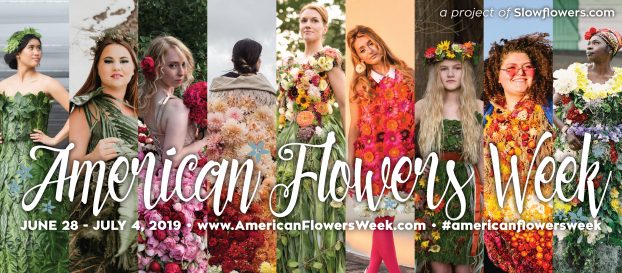
For the fourth year, we’ve produced the American Flowers Week bouquet label. Get in on this program and order labels for your bouquets and other promotions. Labels are available at an affordable price to active Slow Flowers members. We’ll be fulfilling your orders until June 21st to don’t put it off! Details are available in today’s show notes, as well.
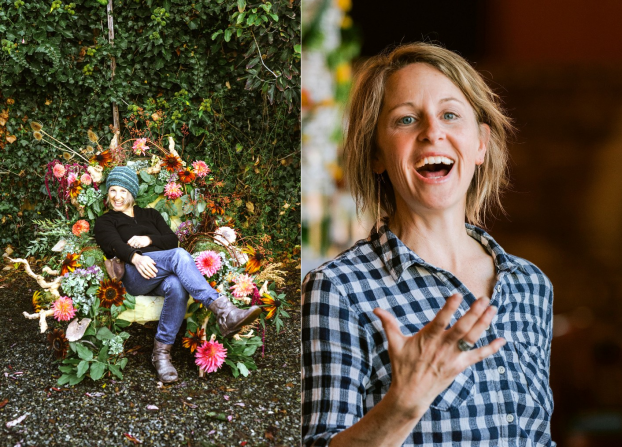
Now, on to our guest of the day: Tobey Nelson. Tobey Nelson is a return guest, and you may recall our past interviews, first when I visited her and others in the Whidbey Island local flowers scene in December 2015 (episode 223) and later in February 2018 (Episode 338) when we discussed details about the second Whidbey Flower Workshop.
It has been a privilege to collaborate with Tobey Nelson on a number of projects, including joining the Whidbey Flower Workshop as both an instructor and speaker; and to interview Tobey for articles in both Florists’ Review and Country Gardens. Tobey has helped to nurture my relationship with one of her mentors, Hitomi Gilliam, and we’ve teamed up on a number of Slow Flowers projects over the years.

When we had a last-minute opening for a Slow Flowers Summit speaker, Tobey came to mind immediately. I asked and she agreed, which is wonderful news! Tobey will co-present with Carly Jenkins of Killing Frost Farm during our morning session that follows Terri McEnaney’s keynote talk.
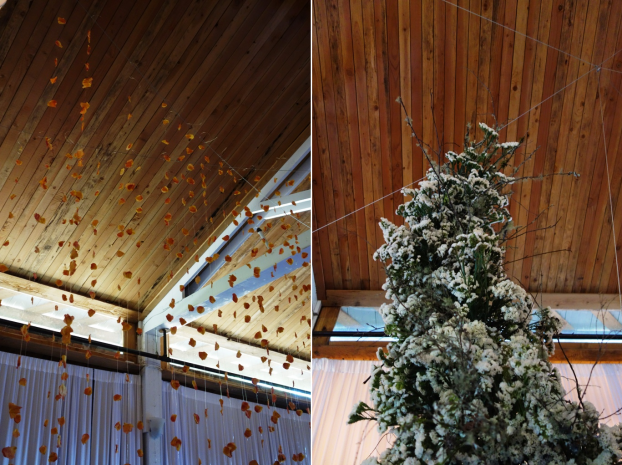
Tobey and Carly’s expertise will blend beautifully as the two women take the stage to discuss sustainable sourcing and installation design. You’ll learn from Carly about how she forages ethically and with an artistic approach that communicates a personal design vocabulary to truly reflect season and place. And Tobey will discuss her commitment to no-foam installation and event design, including methods you can immediately implement in your own practice. Their presentation will continue into the noon hour and our lunch break when Slow Flowers Summit co-host Christine Hoffman joins Tobey and Carly to demonstrate a large-scale “botanical tapestry” in the Paikka Courtyard. During lunch and afternoon breaks, all participants are invited to join in the creation of this sculptural structure, designed in real time and produced using foam-free mechanics.
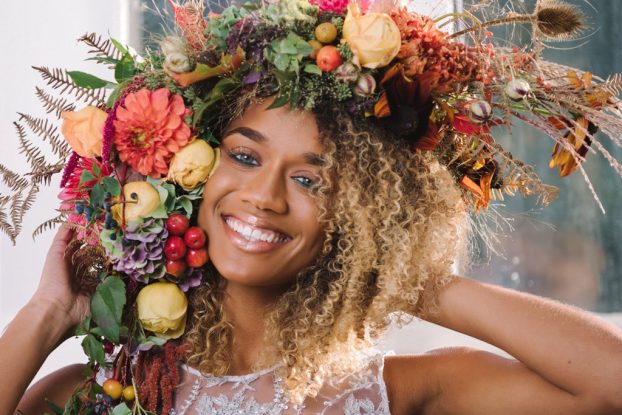
I’m very excited to share this conversation with you. Here’s a little more about Tobey Nelson: A flower-loving plant-a-holic, she owns Tobey Nelson Events and Design, a wedding & event floral design and planning business based on Whidbey Island, Washington outside of Seattle.
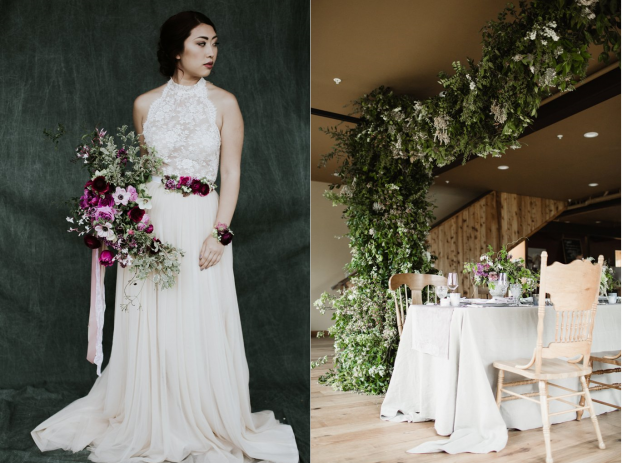
Tobey is firmly committed to sustainable floristry best-practices and to advocating for change in her industry. Tobey’s mission includes sourcing locally grown botanicals, using eco-friendly, sustainable floral design mechanics (never any foam), teaching these approaches to fellow florists and educating consumers so they can make better choices. Tobey is the founder and creator of Whidbey Flower Workshops, a forum for sustainable design education.
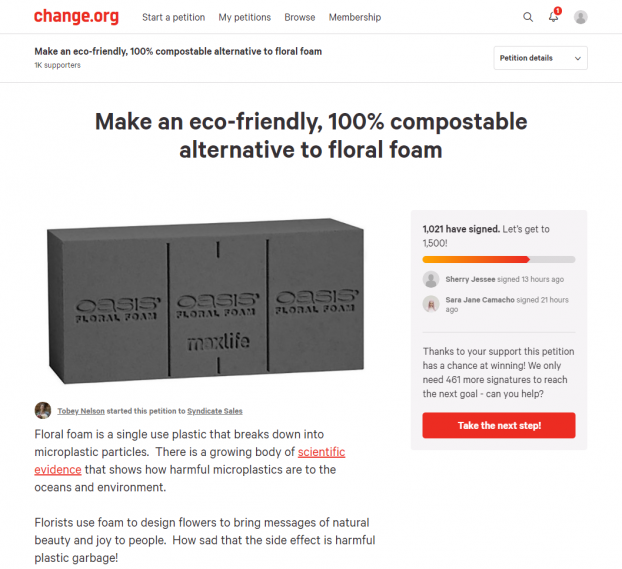
Recently, Tobey has taken her sustainable floristry advocacy to a new level by launching a Change.org petition called “Make an eco-friendly, 100% compostable alternative to floral foam.” Nearly 1,000 floral professionals and consumers have signed the petition that asks makers of floral foam to take the request seriously and work to find green alternatives to the conventional foam. Click on the above link to Tobey’s petition, read thoroughly, and consider whether to add your support as a participant.
Follow Tobey Nelson on Instagram
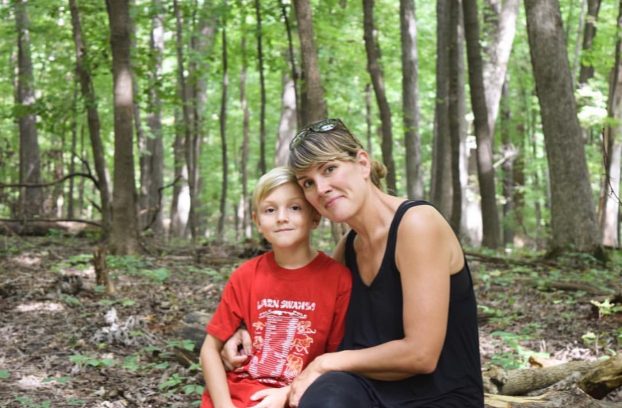
And now, let’s visit the state of Michigan to meet Angie Krausfelt of Two Peas Farm & Flowers, based in Union Pier – she’s part of our Fifty States of Slow Flowers series. Two Peas Farm & Flowers produces sustainably grown seasonal flowers, all-natural skincare, and free range eggs from happy ducks and hens. Angie and her 10-year-old son are the “two peas” of two peas farm & flowers. As she’ll tell us, the enterprise began as little flower stand in chicago; it grew into something more, and that growth prompted the desire for more land and eventually, the rebranding.
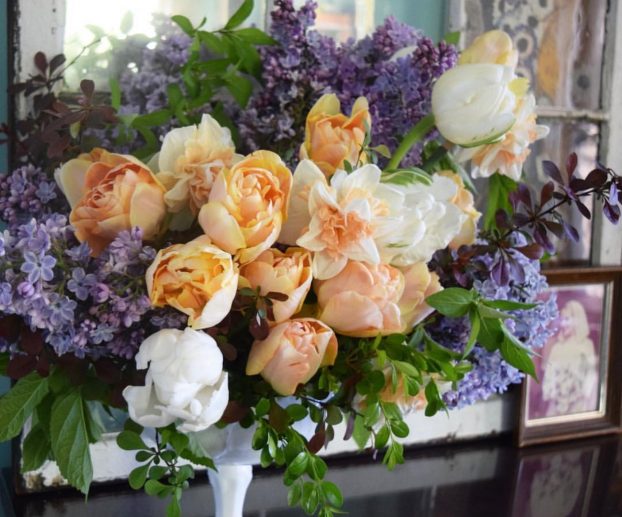
At the end of 2017, mom and son moved out of the windy city to a 10-acre property in Union Pier, Michigan, with the dream of expanding the flower business. Through a lot of hard work, and a commitment to Angie’s vision, the little business has taken on a new life. You might even find lemonade and homemade ice cream at their farm stand friday-sunday, late june through october if, as Angie says, the little pea is working.
Follow Two Peas Farm & Flowers on Facebook
See Two Peas Farm & Flowers on Instagram
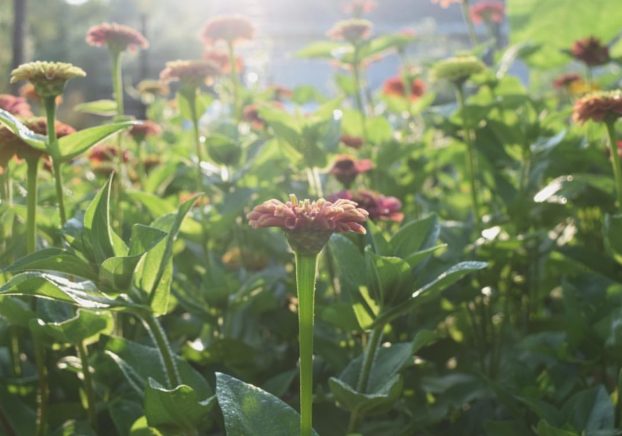
I am so grateful to you for joining me and for spending your time listening to the Slow Flowers Podcast.
Thank you to our entire community of flower farmers and floral designers who together define the Slow Flowers Movement. As our cause gains more supporters and more passionate participants who believe in the importance of the American cut flower industry, the momentum is contagious. I know you feel it, too. I value your support and invite you to show your thanks and with a donation to support my ongoing advocacy, education and outreach activities. You can find the donate button in the column to the right here at debraprinzing.com.
THANK YOU TO OUR SPONSORS:
Florists’ Review magazine. I’m delighted to serve as Contributing Editor for Slow Flowers Journal, found in the pages of Florists’ Review. It’s the leading trade magazine in the floral industry and the only independent periodical for the retail, wholesale and supplier market. Take advantage of the special subscription offer for members of the Slow Flowers Community.
Syndicate Sales, an American manufacturer of vases and accessories for the professional florist. Look for the American Flag Icon to find Syndicate’s USA-made products and join the Syndicate Stars loyalty program at syndicatesales.com. We are so excited that Syndicate has joined the Slow Flowers Summit as a sponsor — and if you attend, you’ll be heading home with some fun Syndicate USA-made swag!
Arctic Alaska Peonies, a cooperative of family farms in the heart of Alaska working together to grow and distribute fresh, stunning, high-quality peony varieties during the months of July and August. Arctic Alaska Peonies operates three pack houses supplying peonies throughout the United States and Canada. Visit them today at arcticalaskapeonies.com
Association of Specialty Cut Flower Growers. Formed in 1988, ASCFG was created to educate, unite, and support commercial cut flower growers. It mission is to help growers produce high-quality floral material, and to foster and promote the local availability of that product. Learn more at ascfg.org. You’ll want to check out the upcoming regional conference, scheduled for Sunday, July 14 & Monday, July 15, in Maine, called “In the Thick of It” — it will feature flower farm tours, networking with other growers, and bonus tours of Johnny’s Selected Seeds and the Coastal Maine Botanical Gardens. It will be a beautiful chance to see both Snell Family Farm and Broadturn Farm at the peak of the season.
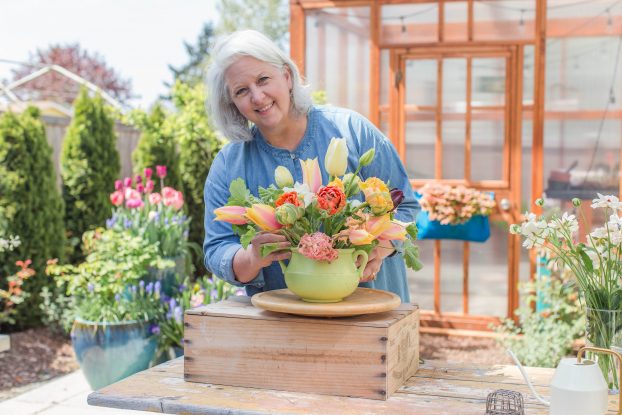
I am so excited about the upcoming SLOW FLOWERS SUMMIT and I hope you can join ME and our vibrant and engaging lineup of presenters on July 1st and 2nd in St. Paul, Minnesota. The countdown has begun – with just a few weeks to go before I see you in the Twin Cities. We’ve already sold more tickets than last-year’s sold-out conference and there are a few tickets left, so please don’t delay anymore! Visit today’s show notes for links to more details or head straight to slowflowerssummit.com to grab your space and join me!
The Slow Flowers Podcast has been downloaded more than 477,000 times by listeners like you. Thank you for listening, commenting and sharing – it means so much.
I’m Debra Prinzing, host and producer of the Slow Flowers Podcast. Next week, you’re invited to join me in putting more American grown flowers on the table, one vase at a time. And If you like what you hear, please consider logging onto iTunes and posting a listener review.
The content and opinions expressed here are either mine alone or those of my guests alone, independent of any podcast sponsor or other person, company or organization.
The Slow Flowers Podcast is engineered and edited by Andrew Brenlan. Learn more about his work at soundbodymovement.com.
Music Credits:
Cases to Rest; Heartland Flyer; Red City Theme; Vittoro; Betty Dear; Gaena; Perspiration
by Blue Dot Sessions http://www.sessions.bluehttps://creativecommons.org/licenses/by-nc/4.0/
Lovely by Tryad http://tryad.bandcamp.com/album/instrumentals
http://creativecommons.org/licenses/by-sa/3.0/
In The Field Music from: audionautix.com









